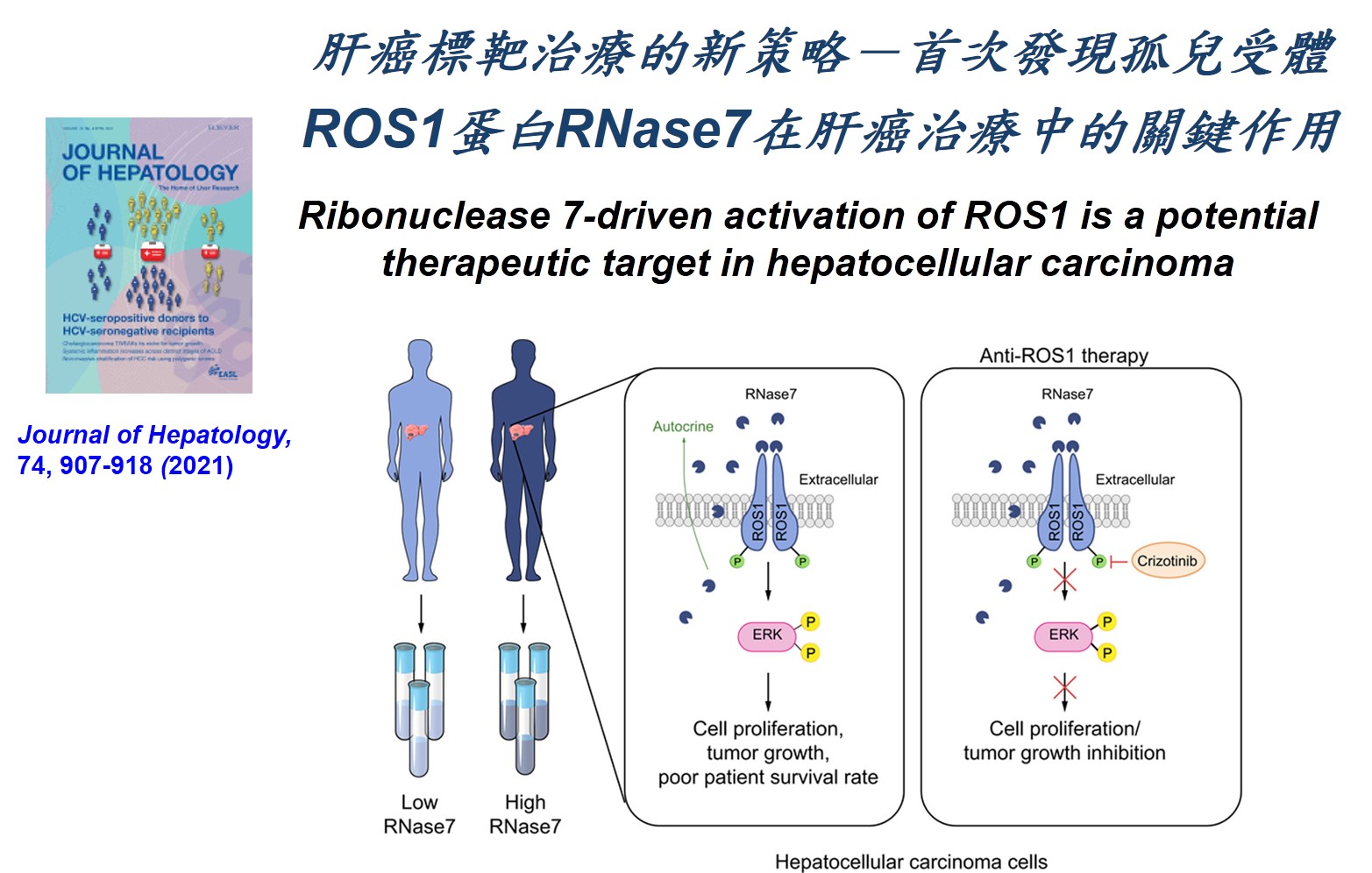【研究亮點】肝癌標靶治療的新策略-首次發現孤兒受體ROS1蛋白RNase7在肝癌治療中的關鍵作用

Abstract
Background & aims: There are currently limited therapeutic options for hepatocellular carcinoma (HCC), particularly when it is diagnosed at advanced stages. Herein, we examined the pathophysiological role of ROS1 and assessed the utility of ROS1-targeted therapy for the treatment of HCC.
Methods: Recombinant ribonucleases (RNases) were purified, and the ligand-receptor relationship between RNase7 and ROS1 was validated in HCC cell lines by Duolink, immunofluorescence, and immunoprecipitation assays. Potential interacting residues between ROS1 and RNase7 were predicted using a protein-protein docking approach. The oncogenic function of RNase7 was analyzed by cell proliferation, migration and invasion assays, and a xenograft mouse model. The efficacy of anti-ROS1 inhibitor treatment was evaluated in patient-derived xenograft (PDX) and orthotopic models. Two independent patient cohorts were analyzed to evaluate the pathological relevance of RNase7/ROS1.
Results: RNase7 associated with ROS1's N3-P2 domain and promoted ROS1-mediated oncogenic transformation. Patients with HCC exhibited elevated plasma RNase7 levels compared with healthy individuals. High ROS1 and RNase7 expression were strongly associated with poor prognosis in patients with HCC. In both HCC PDX and orthotopic mouse models, ROS1 inhibitor treatment markedly suppressed RNase7-induced tumorigenesis, leading to decreased plasma RNase7 levels and tumor shrinkage in mice.
Conclusions: RNase7 serves as a high-affinity ligand for ROS1. Plasma RNase7 could be used as a biomarker to identify patients with HCC who may benefit from anti-ROS1 treatment.
Lay summary: Receptor tyrosine kinases are known to be involved in tumorigenesis and have been targeted therapeutically for a number of cancers, including hepatocellular carcinoma. ROS1 is the only such receptor with kinase activity whose ligand has not been identified. Herein, we show that RNase7 acts as a ligand to activate ROS1 signaling. This has important pathophysiological and therapeutic implications. Anti-ROS1 inhibitors could be used to treatment patients with hepatocellular carcinoma and high RNase7 levels.
